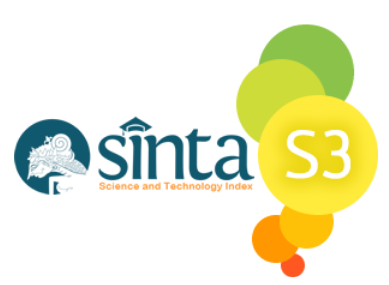THE IMPLEMENTATION OF FACILITY AND INFRASTRUCTURE MANAGEMENT OF ELEMENTARY SCHOOL IN MALANG CITY, INDONESIA
Abstract
The importance of educational facilities and infrastructure is so important that every educational institution is competing to meet the standard criteria for facilities and infrastructure in order to improve the quality of the learning process to support the success of learning objectives in schools. Educational facilities are all facilities that aim to facilitate direct educational activities and learning processes such as the availability of blackboards, textbooks, educational teaching aids. In contrast to educational infrastructure, which has almost the same characteristics as educational facilities, namely to facilitate educational activities and the learning process but is not direct, such as buildings, classrooms, tables, chairs, access to schools. Educational facilities and infrastructure are basically grouped into four groups consisting of land, buildings, equipment, and school furniture. This research used quantitative descriptive with 250 teachers as the research subject to measure the implementation of facilities and infrastructure management in Malang City. Based on the results of measurements of planning stage it is known that there are 22.4% respondents stated that unsatisfied, 50% respondents stated that planning is unsatisfied, 24% respondents stay neutral, 3.2% respondent satisfied and 0.4% respondents stated they feel very satisfied. While in using stage, it is known that 24% respondents stated that they are unsatisfied, 71.6% respondents stated neutral, and 4.4% respondents stated that they are satisfied. Meanwhile in inventorying, it was found that 67.6% respondents stated that they were neutral, 28.8% were satisfied, and 3.6% were very satisfied. Next stage is maintaining, it is known that 20.4% of teachers are unsatisfied and 79.6% of teachers are satisfied. The last stage is deleting, it was known that 0.4% of teachers are very unsatisfied, 40.4% stated that they find unsatisfied, 54% of teachers stated they are neutral, and 5.2% of teachers are satisfied.
Full Text:
PDFReferences
Abdulmuid, Muhibbuddin. (2013). Manajemen Pendidikan. Batang: CV Pengging Mangkunegaran.
Aedi, Nur. (2016) Dasar-Dasar Manajemen Pendidikan. Yogyakarta: Gosyen Publishing.
Anggito, Albi dan Johan Setiawan. (2018). Metodologi Penelitian Kualitatif. Sukabumi: CV Jejak.
Badan Standar Nasional Pendidikan. (2010). Paradigma Pendidikan Nasional Abad XXI. Versi 1.0 Tahun 2010.
Direktorat Jenderal Pendidikan Dasar dan Menengah Kementerian Pendidikan dan Kebudayaan. (2016). Pedoman Umum Sistem Penjaminan Mutu Pendidikan Dasar dan Menengah.
Hadis, Abdul dan Nurhayati B. (2014). Manajemen Mutu Pendidikan. Bandung: Alfabeta.
Hambali dan Ifdlolul Maghfur. (2015). Ilmu Administrasi Birokrasi Publik. Yogyakarta: Yayasan Kodama.
Hasbullah. (2005). Dasar-dasar Ilmu Pendidikan (edisirevisi). Jakarta: PT Raja Grafindo Persada.
Hendrowati, Tri Yuni. (2015). Administrasi Pendidikan. Pringsewu Lampung: CV Anugrah Utama Raharja.
Kementerian Pendidikan dan Kebudayaan Diretorat Jenderal Pendidikan Dasar dan Menengah. (2017). Indikator Mutu Dalam Penjaminan Mutu Pendidikan Dasar dan Menengah.
Khasanah, Nur. (2017). Upaya Kepala Sekolah Dalam Meningkatkan Mutu Pendidikan Di SMP Darussalam Surakarta. Fakultas Ilmu Tarbiyah dan Keguruan. Institut Agama Islam Negeri Surakarta. Surakarta.
Kristiawan, Muhammad, dkk. (2017). Manajemen Pendidikan. Yogyakarta: Dee publish.
Miles, Hubberman dan Saldana. (2014). Quantitative Data Analysis. United States of America: SAGE Publications, Inc.
Moleong, J. Lexy. (2013). Metodologi Penelitian Kualitatif(c). Bandung: PT. Remaja Rosdakarya.
Moleong, J. Lexy. (2014). Metode Penelitian Kualitatif, Edisi Revisi. Bandung: PT. Remaja Rosdakarya.
Mustari, Mohamad dan M. Taufiq Rahman. (2014). Manajemen Pendidikan. Jakarta: Raja Grafika Persada.
Nasrudin dan Maryadi. (2018). Manajemen Sarana dan Prasarana Pendidikan dalam Pembelajaran di SD. Jurnal Managemen Pendidikan, Vol. 13 No. 1 Januari 2018.
Ngusmanto. (2015). Pemikiran dan Praktik Administrasi Pembangunan. Jakarta: Mitra Wacana Media.
Nugroho, D. Riant. (2008). Kebijakan Publik Untuk Negara-Negara Berkembang. Jakarta: PT Alex Media Komputindo.
Nurabada, Ahmad. (2014). Manajemen Sarana dan Prasarana Pendidikan. Malang: Fakultas Ilmu Pendidikan Universitas Negeri Malang.
Nurkholis. (2013). Pendidikan Dalam Upaya Memajukan Teknologi. Jurnal Kependidikan, Vol. 1 No. 1 November 2013.
DOI: https://doi.org/10.18551/erudio.8-2.12
Refbacks
- There are currently no refbacks.
Copyright (c) 2022 Erudio Journal of Educational Innovation

This work is licensed under a Creative Commons Attribution 4.0 International License.












